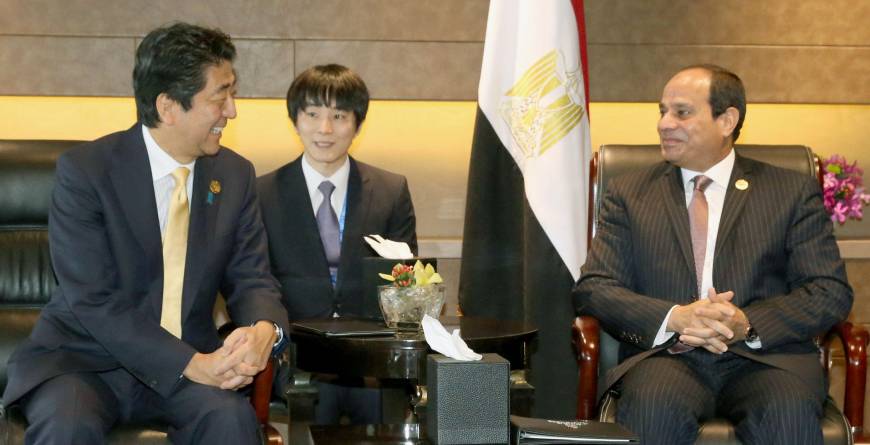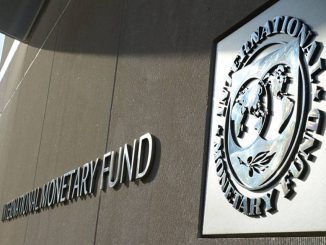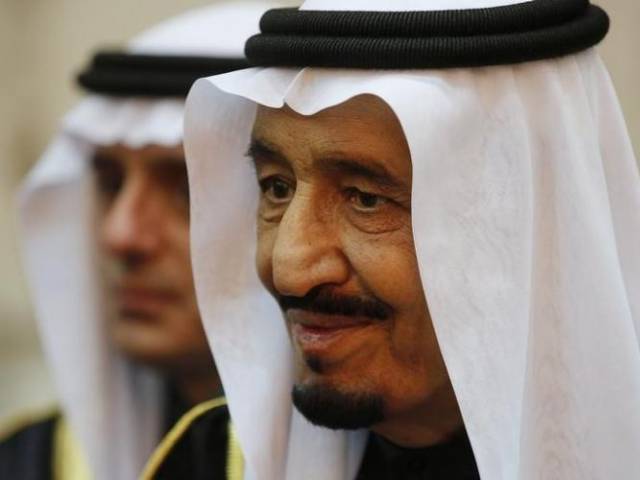
Despite Egypt’s economic problems and the austerity policies announced by the government ahead of the IMF loan agreement, the regime is ready to spend almost half a million dollars on building a museum.
Japan has pledged $451 million in loans to Egypt to help it build the Grand Egyptian Museum project, according to Japan Times.
The Grand Egyptian museum will include over 100,000 artifacts and will be built over 117 acres in Giza. It was initially slated to open in 2015 but has faced numerous delays, partly because of funding problems.
The offer of additional low-interest loans for the construction of the Grand Egyptian Museum was announced by Prime Minister Shinzo Abe when he met Abdel-Fattah al-Sisi in the Chinese city of Hangzhou ahead of this year’s two-day summit of the Group of 20 major economies.
The question that should be raised: Is it logic for a country that thrive unprecedented economic crisis to waste $451 million in building a museum?
In a similar path, a sculpture that appeared in one of the squares of an Upper Egyptian governorate this week has raised many complaints over the social media which said it appeared to depict an unwanted advance on a woman meant to symbolize the country.
The governor of Sohag Province -located in south Egypt- ordered changes to the sculpture after the residents complained that it was inappropriate. However, the sculpture has already costed the government 250,000 Egyptian pound ($28,400).
In response, a group of lawyers in the city went further, demanding a criminal investigation into the head of the city’s government, saying the statue scandal wasted 250,000 EGP ($28,150) of public money.
In their complaint, the lawyers said the affair had “cast light” on what they said was endemic wastage of public money on similar projects, pointing to a costly scheme to install solar-powered fake light-up trees to illuminate the city’s streets.
In reference to the statue, the lawyers accused city administrator Adly Abu Aqil of “accusing others in an attempt to shift the blame away from himself,” bringing him to justice for explaining this misuse of public money.
In the same context, the Egyptian government has recently decided to raise the prices of electricity and and gradually cut off its subsidy. Also, Minister of Endowments Mohamed Mokhtar Gomaa has made a decision not to annex any new mosques (constructed at the expense of citizens through donations) to the endowments ministry except after adding an article, exempting the ministry from the payment of the electricity and water bills and committing worshipers to pay them.
On the other hand, while Al-Sisi was asking the Egyptians to tolerate more austerity, La Tribune, a French newspaper, has recently confirmed that the Egyptian Presidency bought four Falcon 4X jets from Dassault Aviation at a cost of 300 million Euros ($338 million).
Three different scenes summarize Egypt’s governance under al-Sisi that infers the regime’s mismanagement, and lack of awareness of the basics where the economic resources should be directed. Any country that undergoes an economic crisis, resorts to austerity policies through decreasing the public spending, not building museums.
Egypt is facing one of its harshest economic crisis in history. Tourism and foreign investment-which are the major sources of foreign currency- have declined. As a result, Egypt is facing shortage in dollars which led to an increase in the price of US currency in exchange with the Egyptian pound.
Accordingly, the Central Bank of Egypt (CBE) devalued the Egyptian currency in March. However, the devaluation of the Egyptian pound and the shortage of foreign currency have flourished the black market on the currency expense and led to inflation.
As a result, black-market dealers have done a brisk business buying dollars at a nearly 40% premium over the official rate of 8.88 Egyptian pounds per dollar.
Moreover, Egypt isn’t generating the jobs to keep pace with the rising cost of living. Unemployment has hovered around 13% for several years, and that figure is roughly double for young people between 15 and 29 years old, who make up about a quarter of Egypt’s population of 90 million.
Last week, dozens of desperate mothers have taken the streets in a rare public demonstration, with their poor infants in their arms, over shortages in infant milk. Meanwhile, some medicines have doubled in price or disappeared from the market as the cost of basic foods has dramatically increased due to high inflation.
In addition, al-Sisi’s government has witnessed a recent blow by the resignation of Minister of Supply and Internal Trade Khaled Hanafy amid the highest-profile corruption since Abdel Fattah al-Sisi came to power in 2014.
Hanafy’s resignation is the most senior-level fallout from a probe into whether millions of dollars intended to subsidize farmers were used to purchase wheat that did not exist.
Egypt’s supply ministry is the one responsible for a massive food subsidy program and the main state grain buyer, the General Authority for Supply Commodities (GASC).
In this context, members of the parliament, who formed a fact-finding commission to investigate the fraud, said “upwards of 2 million tonnes, or 40%of the locally procured crop, may be missing.”
Accordingly, Egypt under al-Sisi reign has undergone many failures as a result of the inefficient governance of the military rule.The Economist has written in its editorial “The Ruining Of Egypt”that Egypt under the al-Sisi rule is the most worrying country among the Arab world. “Nowhere is the poisonous mix of demographic stress, political repression and economic incompetence more worrying than in Egypt,” read the report.
Al-Sisi, the former Defense Minister who led the military coup in 2013 against the first democratically elected President Mohamed Morsi, has proved to be more repressive than Hosni Mubarak, who was toppled in the Arab spring,” said the Economist .
The regime is fragile as it depends only on the generous injections of cash from Gulf states, and to a lesser degree, by military aid from America. But, with all billions of petrodollars, Egypt’s budget and current-account deficits are gaping, at nearly 12% and 7% of GDP respectively. A bitter condition that led al-Sisi with all his nationalist posturing, he has gone beret in hand to the IMF for a $12 billion bail-out.
“Egypt’s political system needs to be reopened. A good place to start would be for al-Sisi to announce that he will not stand again for election in 2018,” concluded The Economist.



